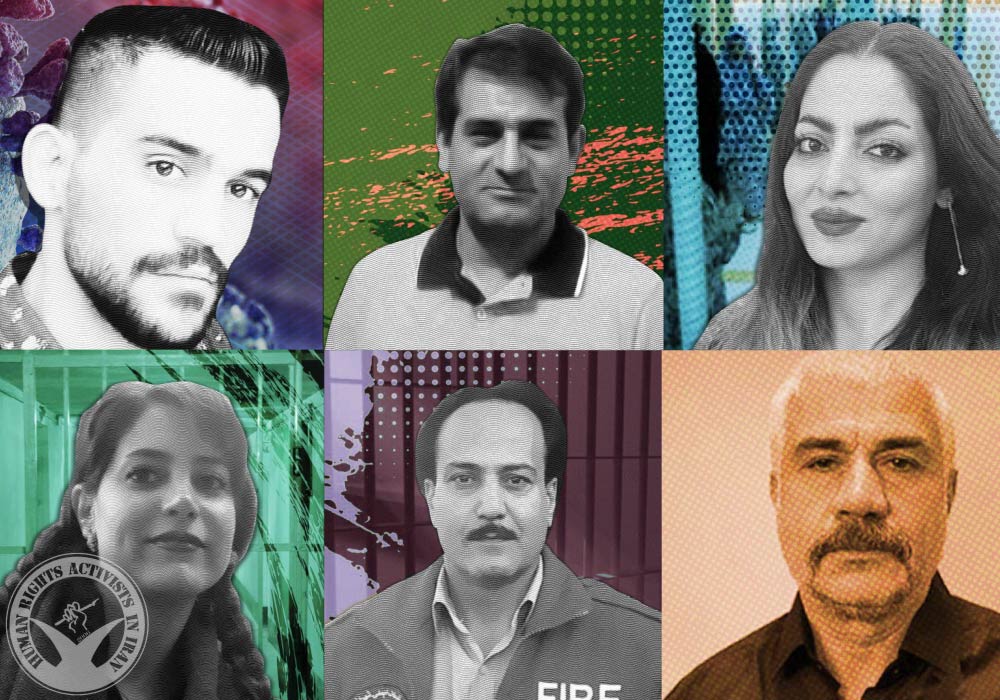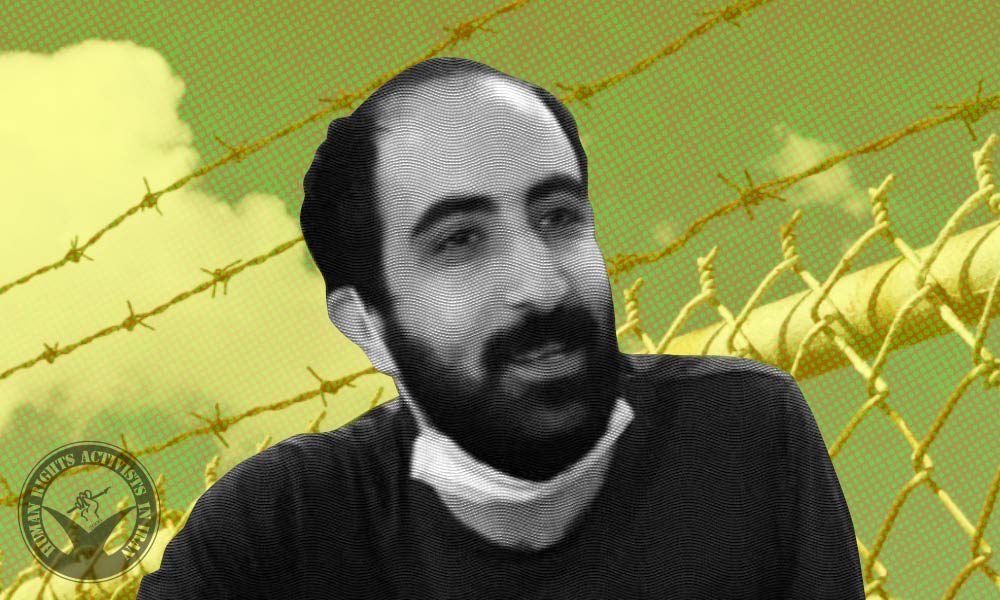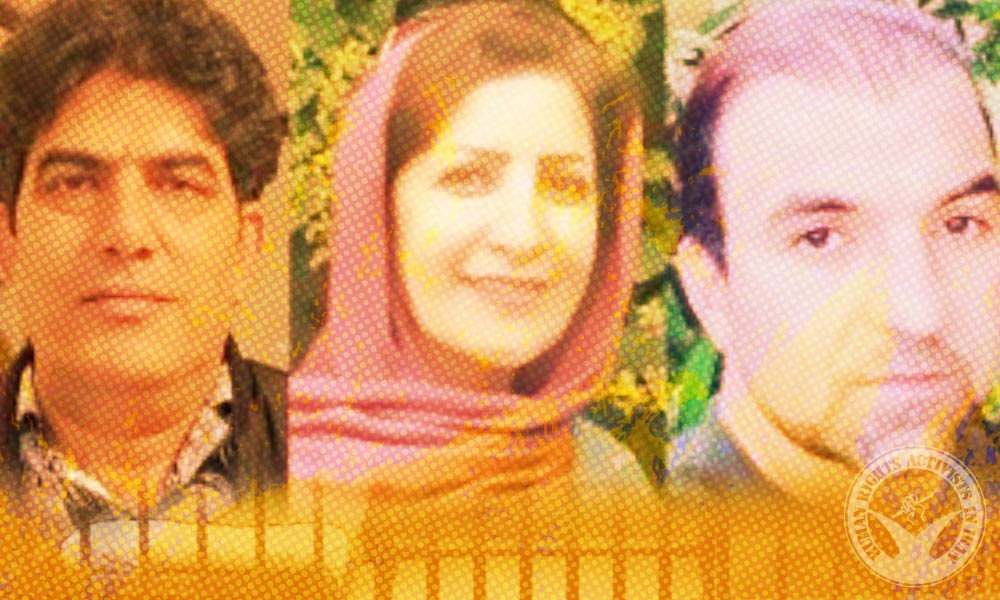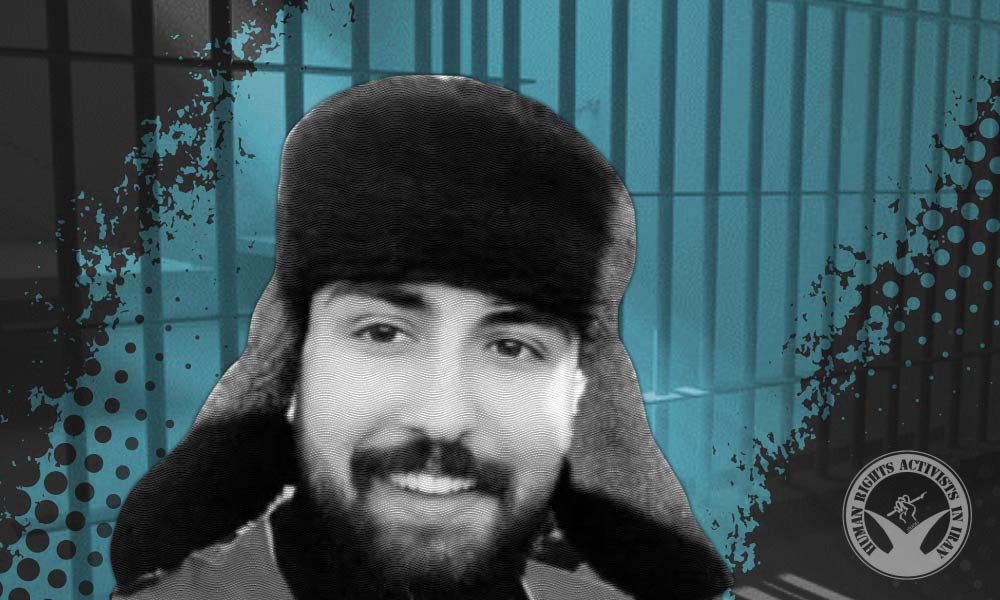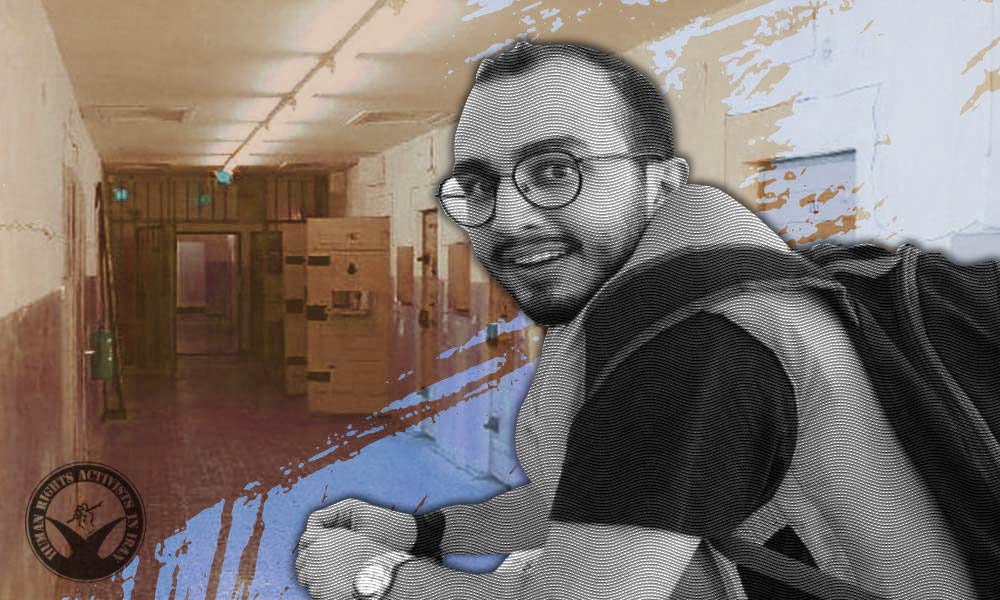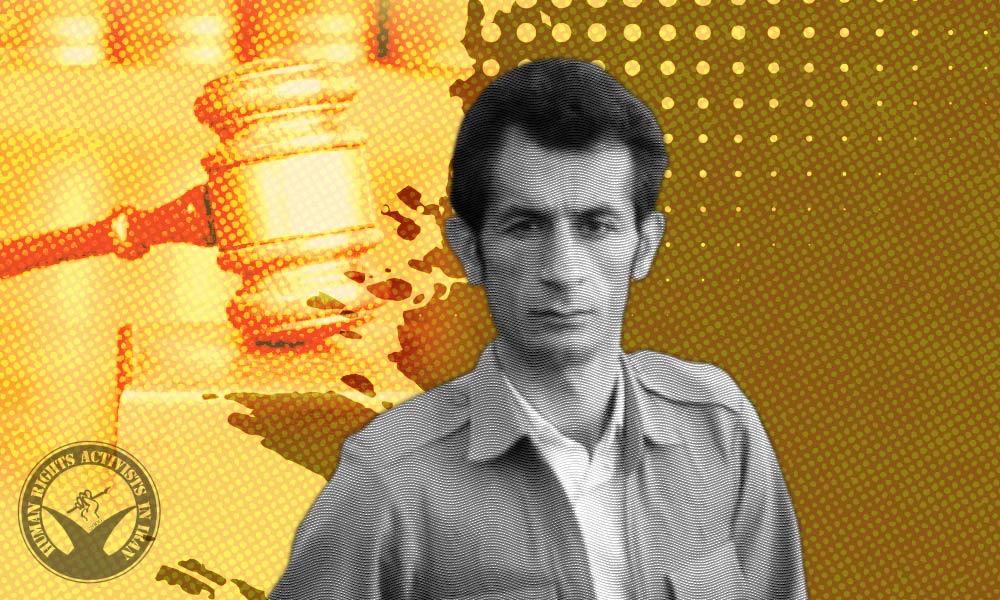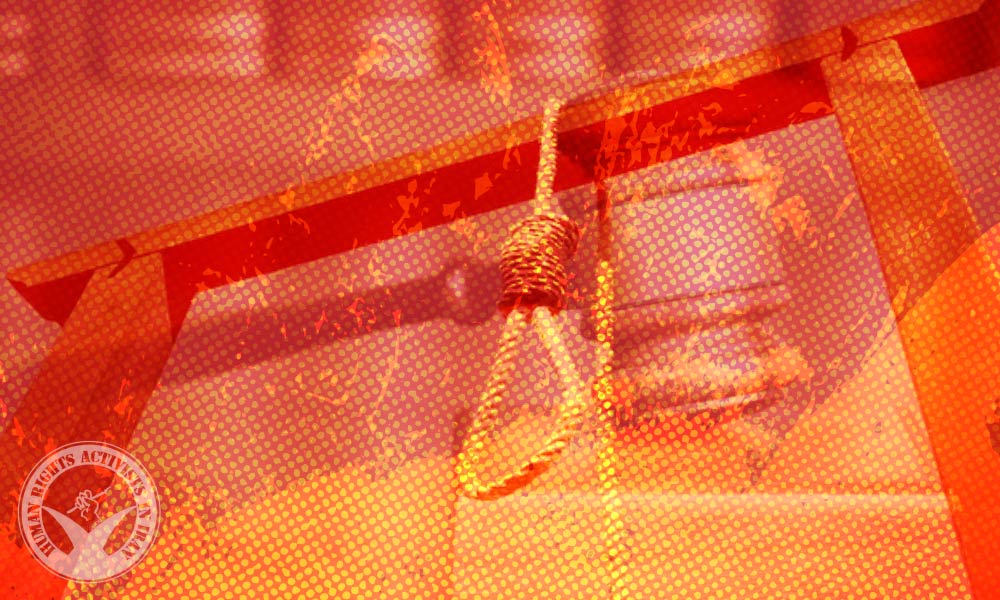In recent weeks, at least 11 detained or imprisoned citizens went on hunger strike in various prisons in protest against a failure to address their concerns.
According to HRANA, the news agency of Human Rights Activists, at least eleven prisoners in various prisons across the country are on hunger strike.
This report outlines their latest conditions:
Zartosht Ahmadi Ragheb: On February 21, this civil activist was arrested at his house and transferred to Evin Prison. He has been on hunger strike since his arrest. On February 28, 2022, he was sent to a solitary confinement cell.
On March 2, he was transferred to the Greater Tehran Central Penitentiary, where prisoners of violent crimes are held. During the arrest, security agents searched his house and confiscated some of his personal belongings. Ragheb is a firefighter with 17 years of work experience who was fired from his job due to his civil activities.
Fariba Asadi: On February 27, this political prisoner went on hunger strike in Qarchak Prison following a quarrel and beating by a fellow inmate to protest against being held in the same ward as prisoners of violent crimes.
On January 3, she was arrested at her house and sent to Qarchak Prison in Varamin City to serve her sentence.
On December 12, 2021, she was summoned by the Executive Unit of the Qods Public and Revolutionary Court to endure her sentence. Earlier, along with three other defendants, she was sentenced to one year imprisonment on the charge of “propaganda against the regime.”
Arsham (Mahmood) Rezai: On February 7, the civil activist, who is jailed in Rajai Shahr Prison in Karaj City, went on hunger strike to protest against a failure to receive adequate medical treatment and refusal to grant him medical furlough. On February 27, the twenty-second day of his hunger strike, his weight had dropped to 52 kilograms and his blood pressure was critically low. He also suffers from a hiatal hernia, an Helicobacter pylori infection and a duodenal ulcer, which have worsened his health during the hunger strike.
Rezai was arrested on January 7, 2019 by security forces. On November 13 of that year, he was released on bail for 200 million tomans until the end of legal proceedings. On February 26, 2019, the Islamic Revolutionary Court sentenced Rezai, without informing his attorney that the court session was taking place, to eight years and six months imprisonment on charges of “propaganda against the regime”, “collusion against national security”, and “offensive statements against the supreme leader of Iran”. Per Article 134 of the Islamic Penal Code, the severest punishment of five years was enforceable. On January 20, the Revolutionary Court sentenced him to an additional 15 months in prison on new charges (which was later reduced to 11 months on appeal) and 4 months penal labor for the Ministry of Agriculture Jihad.
Mohammad Hooshangi: On February 23, Hooshangi went on hunger strike to protest his long-term detention in Urmia Prison. On March 7, he ended his hunger strike after prison officials promised to change bail from 7 billion to 2 billion tomans. In January of 2021, Hooshangi was arrested in Tehran and transferred to a detention centre at disposal of IRGC in Urmia City. Ultimately, after 7 months, he was relocated to Urmia Prison. He was charged with “membership in an anti-regime political groups”.
Ali Musa-Nejad Farkoosh: Since February 1, this civil activist, currently jailed in Rajai Shahr Prison in Karaj City, has been on hunger strike and refuses to take medicine as a way of demanding freedom for political prisoners and prisoners of conscience.
He suffers from diseases such as a hiatal gastric hernia and intestinal diverticulum. On February 27, after twenty-seven days on hunger strike, he had critically low blood pressure and an extreme weight loss of 13 kilograms.
He was granted medical furlough but was forced to return to prison on October 27, 2021 without completing treatment. Earlier, Forensic Medicine in Karaj City confirmed that he suffers from acute diseases that require surgery.
In June 2019, the Revolutionary Court of Tehran, headed by Judge Moghayeseh, sentenced Farkoosh to eight years in prison on charges of “assembly and collusion to act against national security”, “an offensive statement against the current and former supreme leaders of Iran” and “propaganda against the regime”. This verdict was upheld by Branch 36 of Tehran’s Court of Appeals. Per Article 134 of the Islamic Penal Code, the severest punishment of five years on the count of “assembly and collusion” is enforceable.
On November 29, 2020, he was sent to Rajai Shahr Prison to serve his sentence.
Ebrahim Seddigh Hamedani: On February 12, Hamedani went on hunger strike in Marivan Prison to protest against the relocation of him and his son to Sanandaj Prison. Earlier, on January 24, this political prisoner refused to take his medicine in protest, leading to severe hyperglycemia.
He and his son were transferred from Urmia Prison to Marivan and Kamyaran prisons, respectively.
On February 23, 2019, Hamedani was arrested alongside along his son Salar and daughter Maryam Seddigh. He was transferred to Urmia Central Prison on April 23, 2019. Maryam Seddigh Hamedani was released from prison on April 25, 2019.
Branch 2 of the Revolutionary Court of Urmia sentenced both men to 16 years imprisonment on charges such as “acting against national security through membership in an anti-regime organization” and “propaganda against the regime”.
In August of 2020, while serving their sentences, they were relocated to the detention centre of the Ministry of Intelligence in Urmia City and interrogated for allegedly spreading “propaganda against the regime inside prison”. Subsequently, a new legal case was opened against them and they were sentenced to an additional 11 months in prison.
Yousef Mehrad: The prisoner of conscience, who is jailed in Arak Prison, has been accused and condemned for blasphemy against the Prophet of Islam. On February 10, he went on hunger strike to protest the prohibition of phone calls. His latest condition since his hunger strike is unknown.
His lawyer, Mohammad Arman, announced that Mehrad has been sentenced to death for one charge and eight years in prison for the other by the Revolutionary Court of Arak. His court-appointed lawyer called the confirmation of this verdict by the Supreme Court unjust, and asserted that his client must be exonerated.
Previously, HRANA reported about this case, wherein two defendants, Sadrollah Fazeli Zare and Yousef Mehrad, were sentenced to death for “blasphemy against the Prophet of Islam” by Arak’s Revolutionary Court. In another trial, Mehrad was sentenced to 8 years in prison for “offensive statements against the current and formers supreme leader of Iran”.
On May 24, 2020, security forces arrested him at his house in Ardabil City. He was transferred to Arak Prison and was detained for two months in a solitary confinement cell. For eight months, he was not allowed to call his family and was denied family visitation. He is the father of three children.
Shakila Monfared: This political prisoner has been on hunger strike in Qarchak Prison in Varamin City since March 3.
She has gone on hunger strike to protest the housing of political prisoners in the same ward as prisoners of violent crime, the irresponsibility of prison officials towards her safety and a recent threat from a fellow inmates.
An informed source told HRANA that a prisoner of violent crimes threatened her with a sharpened piece of can and intended to injure her.
There is no further info about her condition since she was relocated to Ward 8 of the prison.
On August 31, 2020, security forces arrested Monfared while she was leaving her home. They transferred her to a detention centre at the disposal of the IRGC in Tehran. Reportedly, they did not have a warrant for this arrest.
On September 9 of last year, she was relocated to the quarantine section of the women’s ward of Evin Prison. On September 14, she was released on bail of 400 million tomans until the end of legal proceedings.
In January of this year, the joint court trial of Shakila Monfared, Arsham Rezaei, and Mohammad Abolhassani was held in Branch 26 of the Revolutionary Court of Tehran, presided over by Judge Iman Afshari. 27-year-old Monfared was sentenced to 6 years in prison and 4 months of probation work in the Agricultural Jihad on charges of “propaganda activities against the system” and “insulting the sanctities of Islam”.
In addition to the mentioned-above political prisoners and imprisoned civil activists, at least three other prisoners, Habibollah Miraki, Loghman Mamandi and Loghman Abdolllahzadeh, went on hunger strike in Kamyaran Prison to protest the refusal of prison officials to grant furlough. Abdolllahzadeh has been on hunger strike since last Sunday, and the first two prisoners since yesterday.
In Iran’s prisons, hunger strikes are common among prisoners despite causing long-term physical and mental impairment. Hunger strikes are used as a last resort to achieve urgent demands such as unlawful long-term detention without trials, violations of prisoners’ rights and infringement in due process.



